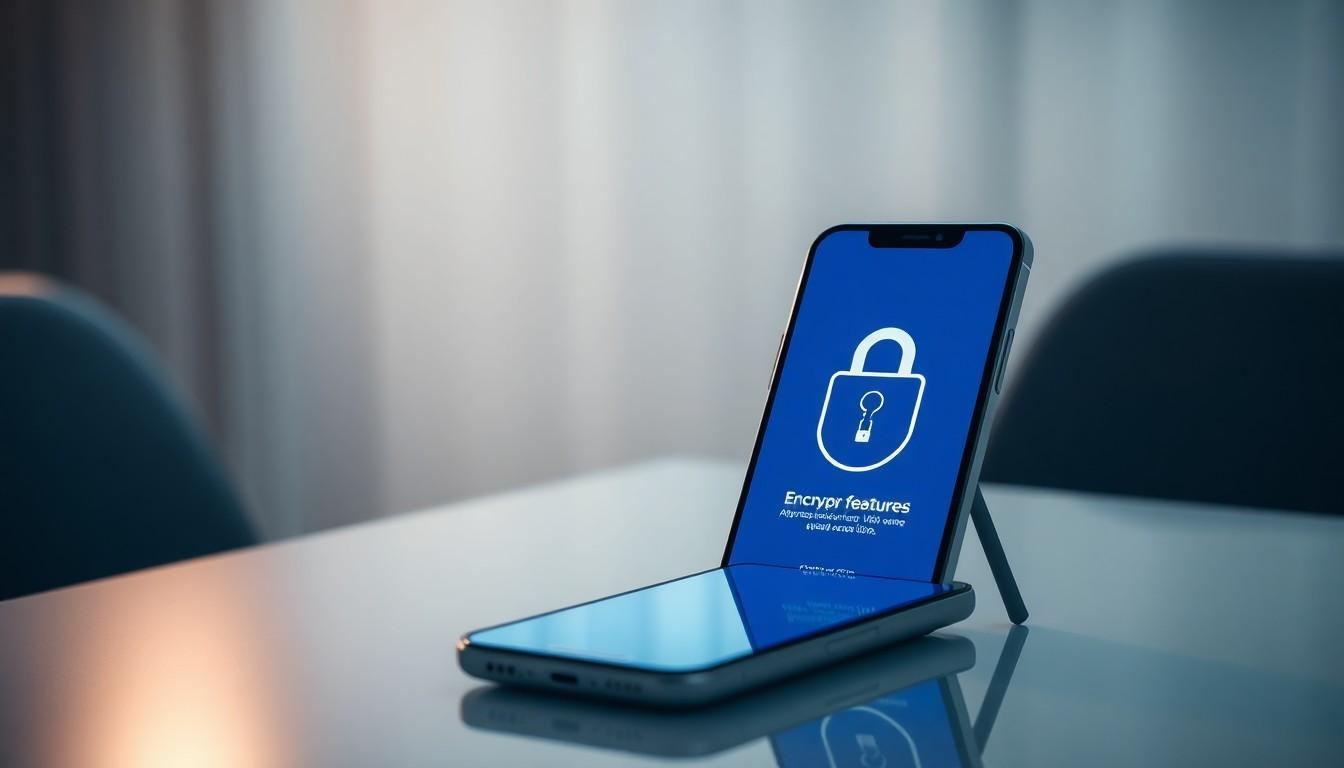In a world where privacy feels as elusive as a good Wi-Fi signal, choosing a secure phone is like finding a unicorn in a tech store. With hackers lurking like ninjas and data breaches popping up like unwanted ads, it’s time to take your digital security seriously. But fear not, because the quest for the most secure phones is about to get a whole lot easier—and maybe even a bit fun.
Imagine a phone that not only keeps your secrets safe but also makes you feel like a tech-savvy superhero. From encrypted messaging to biometric locks, these devices are designed to shield your personal information from prying eyes. So, buckle up as we dive into the world of secure smartphones, where safety meets style, and your privacy is the ultimate power-up.
Table of Contents
ToggleOverview of Secure Phones
Secure phones provide essential protection for users’ personal information. These devices incorporate features that prioritize data security and privacy. Encryption serves as a critical element, ensuring that messages and calls remain confidential. Biometric locks enhance security by requiring unique physical traits for device access.
Organizations leverage secure smartphones to protect sensitive data. Users appreciate the integration of VPNs, which mask online activity, adding another layer of privacy. Advanced security measures, like regular updates and strong passwords, also contribute to overall device safety.
Many manufacturers focus on creating secure operating systems. These systems minimize vulnerabilities and offer additional security layers against malware. Some phones come equipped with privacy-focused applications that limit data sharing, allowing users to have better control over their information.
In addition, companies often provide detailed security protocols for their devices. For instance, certain models feature self-destruction capabilities, deleting information upon unauthorized access attempts. Users in demanding security environments find devices with these capabilities particularly valuable.
Ultimately, the selection of a secure smartphone involves assessing compatibility with individual privacy needs. Evaluating features such as hardware security modules and secure boot processes aids in making informed decisions. Prioritizing security in phone selection empowers users to navigate the digital landscape with confidence.
Key Features of Most Secure Phones

Secure phones incorporate several key features that elevate user privacy and data protection. Emphasizing encryption standards is crucial, as these technologies ensure that communications remain confidential. Advanced encryption standards, such as AES-256, protect text messages and calls from unauthorized access. Devices utilizing end-to-end encryption safeguard user data by requiring keys only available to the sender and recipient.
Regular security updates maintain a robust defense against potential vulnerabilities. Manufacturers prioritize timely updates to address emerging threats. Continuous support for software and security patches fortifies the device against malware and exploits. Users benefit from devices that receive updates promptly, as this practice enhances overall security. Strong vendor commitment to long-term support also plays a vital role in ensuring continued protection for sensitive information.
Top Picks for Most Secure Phones
Finding the right secure phone involves exploring various models equipped with advanced features. Below are top picks that excel in protecting user data.
Phone 1: Overview and Features
The Librem 5 stands out due to its focus on privacy. It utilizes a Linux-based operating system that prioritizes user control over software. Users benefit from hardware kill switches, allowing them to disable cameras, microphones, and networking components. The phone employs strong encryption protocols, such as AES-256, ensuring messages and calls remain confidential. Regular software updates enhance security, addressing vulnerabilities and keeping user data safe.
Phone 2: Overview and Features
The PinePhone combines open-source software with robust security features. Users enjoy flexibility in installing trusted operating systems that best suit their privacy needs. End-to-end encryption safeguards communications from unauthorized access, while privacy tools help minimize data sharing. Biometric security options, such as fingerprint recognition, add an extra layer of protection. Frequent updates reinforce its defenses against malware and emerging threats.
Phone 3: Overview and Features
The iPhone 14 sets a high standard for security in smartphones. Apple’s iOS incorporates advanced security measures, including hardware security modules that encrypt sensitive data. Users can enable two-factor authentication for an added level of security. Regular security patches keep the system updated against vulnerabilities, ensuring ongoing protection. Privacy settings empower users to maintain control over their personal data, making it an excellent choice for secure mobile use.
Comparison of Security Features
Comparing security features across different smartphones reveals significant variations. The Librem 5 uses a Linux-based operating system, providing enhanced control through hardware kill switches. Such switches allow users to disconnect the microphone and camera quickly, promoting privacy.
In conjunction with its operating system, the PinePhone offers robust security, combining open-source software with features like end-to-end encryption and biometric safeguards. This combination helps protect user data from unauthorized access.
Notably, the iPhone 14 incorporates advanced security measures, including hardware security modules. Two-factor authentication further adds an essential layer, ensuring only authorized users can access the device and its data.
Regular security updates remain a critical consideration when evaluating secure phones. Manufacturers prioritizing timely updates can significantly enhance defenses against emerging threats. Strong vendor support ensures continued protection for sensitive information.
Another aspect involves the use of advanced encryption standards. Phones featuring AES-256 encryption safeguard communications from hacking attempts, maintaining confidentiality. End-to-end encryption guarantees that only designated users have access to communication keys.
Additionally, privacy-focused applications offer an effective way to limit data sharing. Phones equipped with such applications empower users by giving them better oversight of their information. Self-destruction capabilities can also be vital for users concerned about unauthorized access attempts.
Ultimately, each smartphone offers unique strengths in terms of security. Evaluating features like hardware security modules, biometric locks, and regular updates enables users to select devices aligned with their privacy needs. Each option contributes meaningfully to safeguarding personal data in an increasingly digital world.
Choosing a secure phone is essential for anyone looking to protect their personal information in today’s digital landscape. With features like encryption and biometric locks, these devices not only safeguard data but also enhance user experience.
As privacy concerns grow, selecting a smartphone that prioritizes security can empower users to take control of their digital lives. By evaluating options that offer regular updates and robust security protocols, individuals can confidently navigate the complexities of modern technology.
Investing in a secure phone is not just about protection; it’s about ensuring peace of mind in an ever-evolving digital world.






